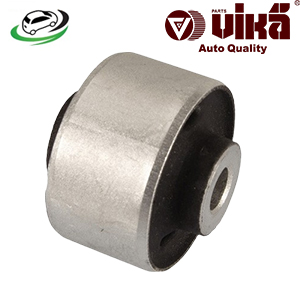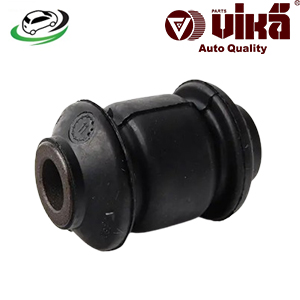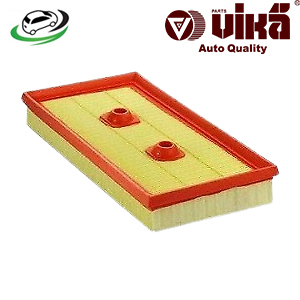-25%
Get Air Filter Element Sub Assy AUDI A3 / VW Golf Plus V/Jetta III/ Passat B6/Touran 03C129620B
Air filters are essential components in vehicles and machinery, playing a crucial role in maintaining engine health and performance. They serve as the first line of defense, trapping dust, dirt, and other airborne contaminants before they can enter the engine. This prevents damage and ensures the engine runs efficiently. Understanding the function, types, maintenance, and common issues related to air filters is vital for vehicle owners, mechanics, and enthusiasts alike.
Function of Air Filters
- Engine Protection: The primary function of an air filter is to prevent harmful particles from entering the engine. Contaminants like dust, pollen, and debris can cause significant wear and tear, leading to decreased performance and potential engine failure.
- Fuel Efficiency: A clean air filter ensures the optimal air-to-fuel ratio, which is crucial for efficient fuel combustion. A clogged filter restricts airflow, causing the engine to work harder and consume more fuel.
- Performance Enhancement: Air filters allow the engine to breathe freely, which enhances overall performance and power output. Ensuring the engine receives a consistent supply of clean air is essential for peak performance.
- Emission Reduction: By providing clean air for combustion, air filters help reduce harmful emissions. This contributes to a cleaner environment and ensures the vehicle meets emission standards.
Types of Air Filters
- Paper Air Filters: These are the most common type found in vehicles. Made from pleated paper, they are effective at trapping contaminants and are relatively inexpensive. However, they need frequent replacement as they cannot be cleaned.
- Foam Air Filters: Made from a sponge-like material, foam filters are often used in off-road vehicles and motorcycles. They can be cleaned and reused multiple times, making them cost-effective. However, they may not filter as finely as paper filters.
- Cotton Gauze Air Filters: Typically found in high-performance vehicles, these filters consist of multiple layers of oiled cotton gauze. They offer excellent airflow and filtration efficiency and are washable and reusable. Brands like K&N are well-known for producing these filters.
- Synthetic Air Filters: These filters use synthetic materials to provide high filtration efficiency and durability. They are commonly used in both standard vehicles and heavy machinery.
- Carbon Air Filters: Containing activated carbon, these filters help remove odors and harmful gases in addition to particulate matter. They are often used in cabin air filters to improve the air quality inside the vehicle.
Signs of a Dirty or Failing Air Filter
- Reduced Fuel Efficiency: A noticeable drop in fuel economy can indicate a clogged air filter, as the engine struggles to get enough air.
- Engine Misfires or Rough Idling: Dirty air filters can lead to improper fuel combustion, causing the engine to misfire or idle roughly.
- Decreased Engine Performance: Restricted airflow due to a dirty filter can reduce engine power, making acceleration sluggish and overall performance poor.
- Unusual Engine Sounds: Whistling or coughing noises from the engine can indicate that the air filter is clogged and air is being forced through restricted spaces.
- Check Engine Light: In some cases, a dirty air filter can trigger the check engine light due to the engine’s sensors detecting poor air quality or incorrect air-to-fuel ratios.
Maintenance and Replacement
Regular maintenance and timely replacement of air filters are crucial for optimal engine performance and longevity. Here are the steps to follow:
- Inspection: Check the air filter at regular intervals, typically every 12,000 to 15,000 miles, or as recommended by the vehicle manufacturer. In dusty or harsh environments, more frequent inspections may be necessary.
- Cleaning: Some air filters, such as foam and cotton gauze types, can be cleaned and reused. Follow the manufacturer’s instructions for proper cleaning methods and re-oiling, if required.
- Replacement: Paper and synthetic filters should be replaced when dirty or clogged. Always use the correct type and size of filter specified for your vehicle.
- Professional Service: If unsure about the condition of your air filter or how to replace it, consult a professional mechanic for an accurate assessment and service.
Replacement Procedure
- Locate the Air Filter Housing: In most vehicles, the air filter is housed in a plastic or metal box near the engine. Consult the vehicle’s manual for the exact location.
- Open the Housing: Release the clips or screws holding the housing cover. Carefully remove the cover to access the air filter.
- Remove the Old Filter: Take out the old air filter and inspect it for dirt and debris. Dispose of it properly if it is a disposable type.
- Clean the Housing: Wipe out any dirt or debris inside the housing to ensure a clean environment for the new filter.
- Install the New Filter: Place the new air filter into the housing, ensuring it fits snugly and securely.
- Close the Housing: Reattach the cover and secure it with the clips or screws.
- Final Check: Ensure everything is properly reassembled and there are no loose parts before starting the engine.
Common Issues and Troubleshooting
- Incorrect Filter Type: Using the wrong type or size of air filter can lead to poor filtration and engine performance. Always use the specified filter for your vehicle.
- Improper Installation: Ensure the air filter is correctly installed and the housing is securely closed to avoid unfiltered air entering the engine.
- Neglecting Maintenance: Failing to regularly inspect and replace the air filter can lead to engine damage and decreased performance.
- Aftermarket Filters: While some aftermarket filters may offer better performance, ensure they meet the vehicle manufacturer’s specifications to avoid potential issues.
Follow us on Facebook for more parts.



